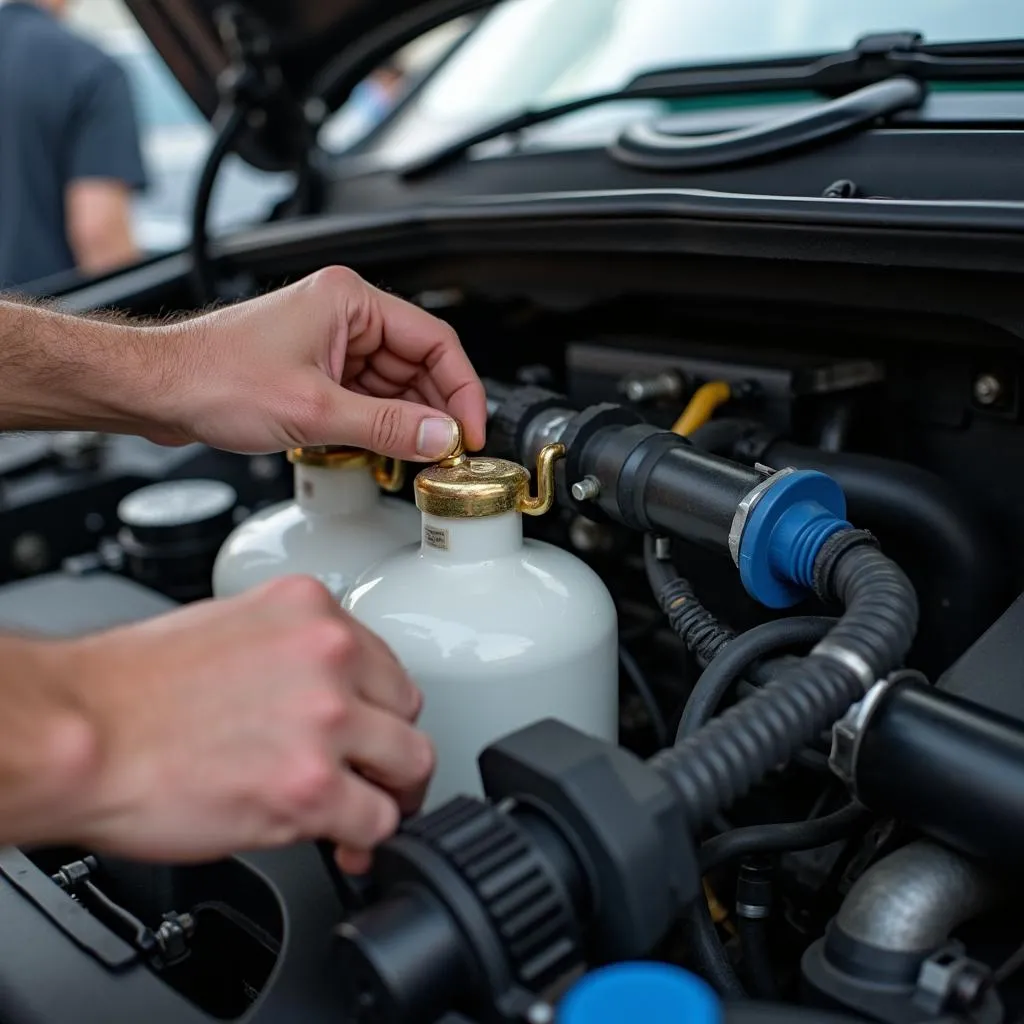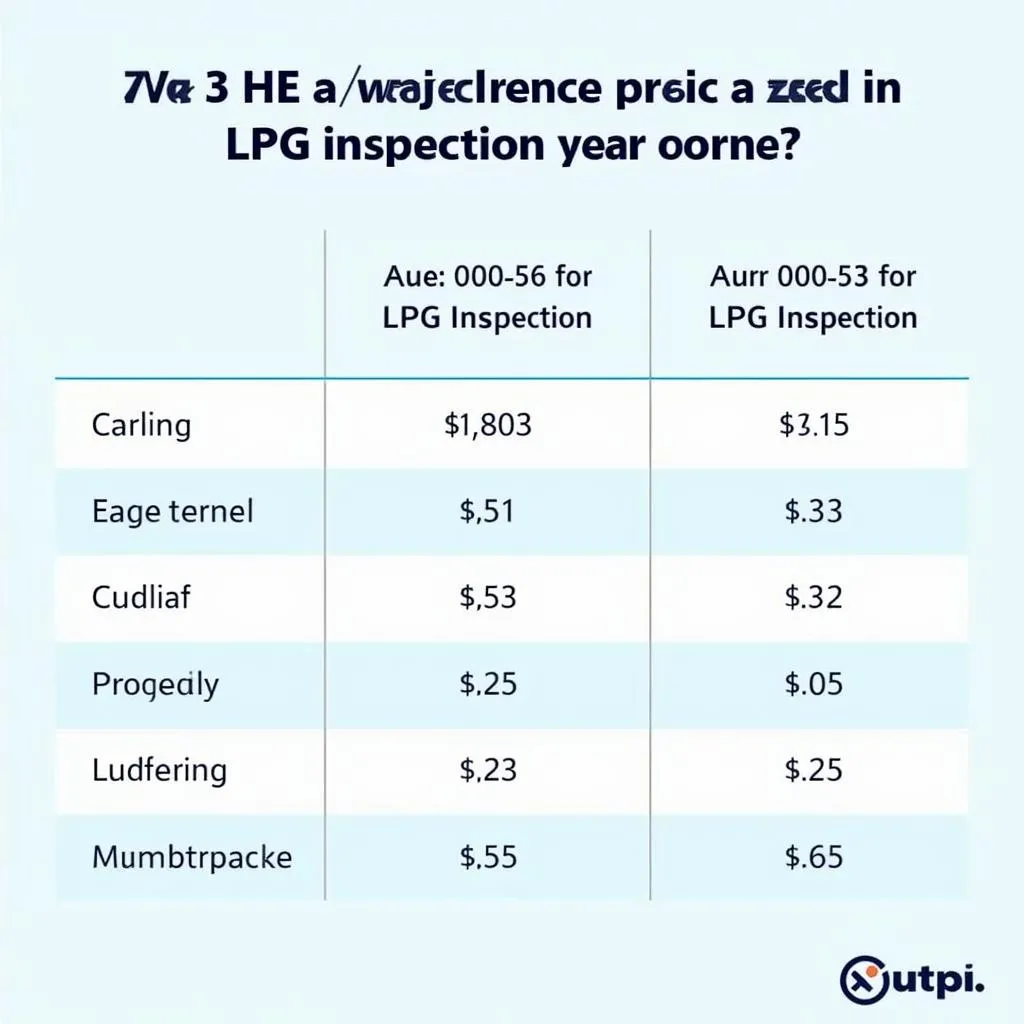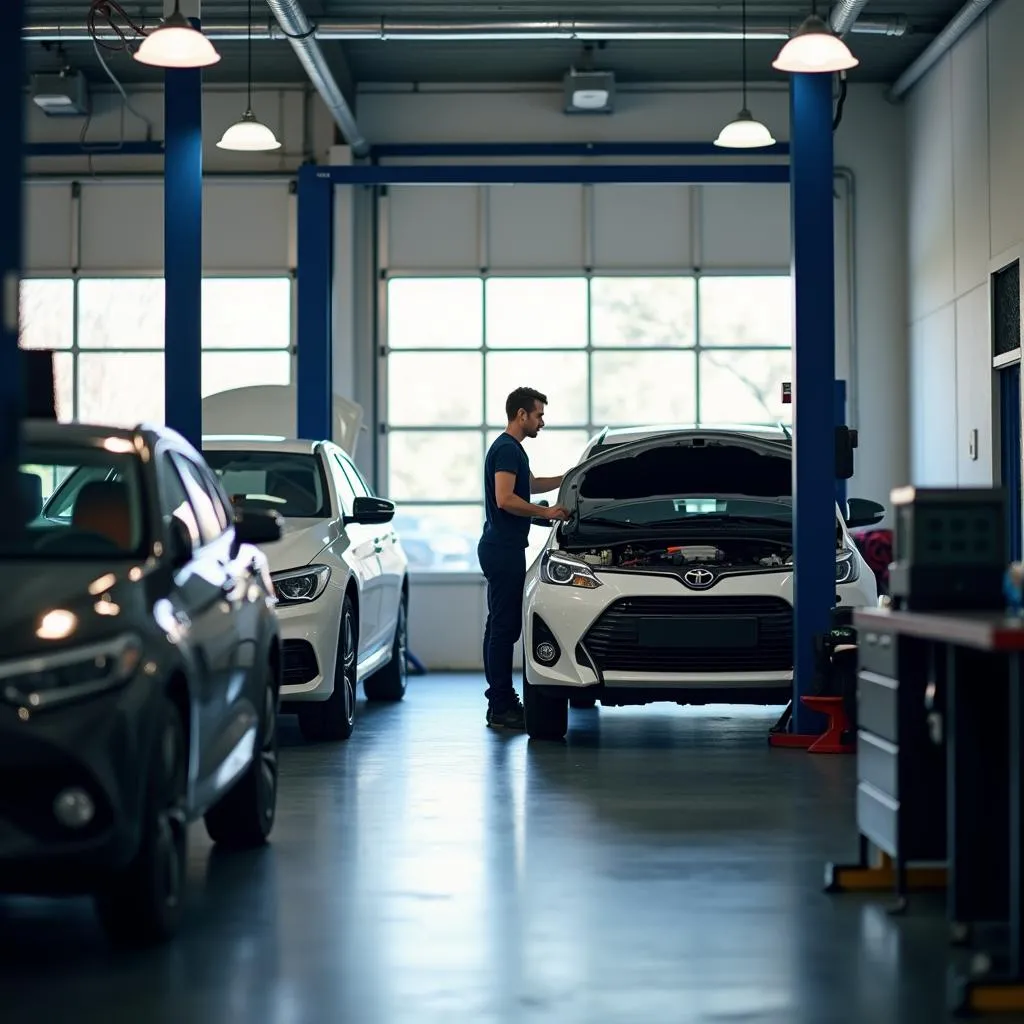The car gas system inspection, often referred to as “LPG inspection” or “CNG inspection,” is a crucial part of vehicle maintenance for all car owners with autogas systems. It serves not only your own safety but also the protection of other road users and the environment. But what exactly does such an inspection entail, and why is it so important?
What is a Car Gas System Inspection and Why is it Important?
A car gas system inspection is a mandatory safety check for vehicles running on liquefied petroleum gas (LPG) or compressed natural gas (CNG). It is designed to ensure that the gas system functions properly and poses no danger to people or the environment.
Imagine this: You’re driving on the highway, and suddenly you smell gas. A leak in the gas system can have serious consequences, ranging from engine damage to a fire. To prevent such scenarios, regular gas system inspections are essential.
 Safe gas system in a car
Safe gas system in a car
What is Checked During a Car Gas System Inspection?
During the gas system inspection, a qualified technician checks all critical components of the system, including:
- Gas Tank: Condition, tightness, expiration date
- Pipes and Hoses: Damage, cracks, tightness
- Vaporizer: Function, adjustment
- Injectors: Function, tightness
- Control Unit: Function, adjustment
In addition, the vehicle’s exhaust gas composition is measured to ensure the system operates in an environmentally friendly manner.
When is a Car Gas System Inspection Required?
The gas system inspection is generally due every 12 months. In some countries, such as Germany, it is part of the main vehicle inspection (HU). The exact date of the next inspection is noted in the vehicle registration document.
How Much Does a Car Gas System Inspection Cost?
The costs for a gas system inspection vary depending on the provider and the scope of the inspection. On average, you should expect costs between 50 and 100 euros.
 Costs for car gas system inspection
Costs for car gas system inspection
Where Can I Get a Car Gas System Inspection Done?
The gas system inspection can usually be carried out at any qualified workshop. It is best to ask your trusted workshop.
What Happens If the Car Gas System Inspection Fails?
If defects are found during the gas system inspection, they must be rectified. Only after a successful re-inspection will you receive a new inspection sticker.
Benefits of Regular Car Gas System Inspections
In addition to increased safety, regular gas system inspections offer further advantages:
- Environmental Protection: An optimally adjusted gas system reduces pollutant emissions.
- Cost Savings: A properly functioning gas system ensures lower fuel consumption.
- Value Retention: Regular maintenance and inspections preserve the value of your vehicle.
Conclusion: Stay Safe with Regular Car Gas System Inspections
The gas system inspection is an indispensable part of vehicle maintenance for all car owners with autogas systems. It protects not only you and other road users but also the environment and your wallet. Therefore, ensure regular inspection of your gas system and drive safely and worry-free.
Do you have any further questions about car gas system inspections or need assistance in finding a qualified workshop? Feel free to contact us – our car repair experts are always available to help!
More Interesting Topics About Car Repairs:
- Check engine light is on? Here’s how to find the cause!
- Brakes squealing? This could be the reason!
- Timing belt replacement: When is the right time?
 Professional car repair in a workshop
Professional car repair in a workshop
Visit our website autorepairaid.com for more helpful tips and information on car repair and vehicle maintenance!
